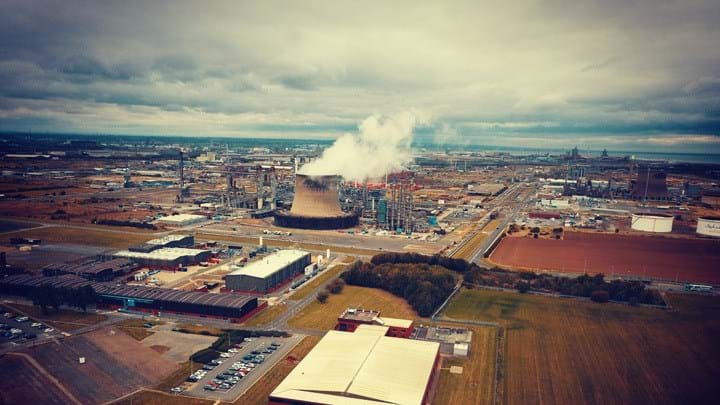£4bn of contracts awarded for construction of UK CCS projects

ENGINEERING firms, including Costain and Wood, have been awarded contracts worth £4bn (US$5bn) to construct two CCS projects in Teesside. The projects involve building a world-first gas-powered power plant with the systems needed to capture its emissions and transport them offshore for burial beneath the North Sea.
The contracts have been awarded by Net Zero Teesside Power (NZT), a joint venture between bp and Equinor, for engineers to begin constructing a 742 MW combined cycle gas power plant with a carbon capture capacity of 2m t/y. Construction will start in mid-2025 and create 3,000 jobs. Operations are expected to start in 2028, creating 1,000 jobs.
At the same time, engineers will build the CO2 transportation and storage systems needed to store the captured emissions. This infrastructure will be operated by Northern Endurance Partnership (NEP), a venture involving bp, Equinor and TotalEnergies. The system will initially transport emissions from the NZT power plant and two other projects. These are bp’s planned blue hydrogen production plant, called H2Teesside, and BOC’s Teesside Hydrogen CO2 Capture project.
Who has been awarded what?
Building work on both the NZT and NEP projects will be completed by nine engineering, procurement and construction contracts across eight contract packages worth £4bn. These include Wood, which has been awarded the integrated projects management team contract. Technip Energies and GE Vernova will lead on the onshore power, capture, and compression package using Cansolv capture technology licensed from Shell.
Costain has been awarded the EPC for the onshore CO2 gathering system and gas connection after completing the front-end engineering and design (FEED) for the carbon capture network.
TechnipFMC will construct the offshore subsea injection system while Genesis will handle the offshore systems engineering.
Chris McDonald, Labour MP for Stockton North and a Fellow of IChemE, said: “This is a monumental moment for Teesside and a project of national and international importance. Net Zero Teesside is more than just a local initiative – it’s a symbol of our region’s unmatched engineering heritage and our readiness to lead the world in tackling the climate crisis. Eyes from across the globe will be on Teesside as we deliver this crucial step in the green industrial revolution.”
Elise Nowee, president of Shell Catalysts & Technologies, said: “We are addressing the growing demand for scalable post-combustion carbon capture solutions. With the potential to capture up to 2m t of CO2 annually, Net Zero Teesside Power marks a critical milestone in the UK’s journey toward net zero.”
The greenlight for construction follows the government’s decision in October to invest £21.7bn in its two priority CCS clusters in Teesside and Merseyside as its pushes for the country to lead in greener technologies.
The developers say they are aiming for the project to be the first in the world to capture emissions from a gas-fired power plant. There are several large-scale coal-fired power stations operating with CCS in Canada, China, and the US but there are currently no gas-fired plants capturing their emissions, according to data from the Global CCS Institute. NZT is not the only gas-fired CCS project in development so the race is on to see whether it will be the first to start operations.
NZT had submitted plans for approval for a plant scaled up to 860 MW. This was reduced to 742 MW following the FEED process to maximise value for money.
Recent Editions
Catch up on the latest news, views and jobs from The Chemical Engineer. Below are the four latest issues. View a wider selection of the archive from within the Magazine section of this site.




